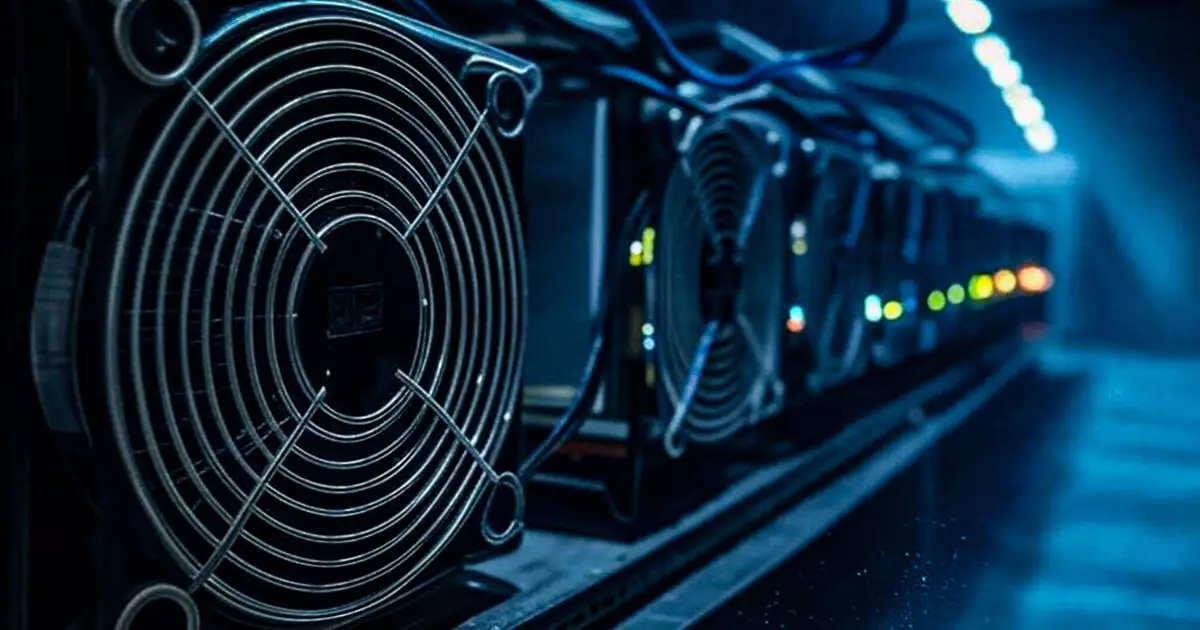The landscape of cryptocurrency mining in the United States is undergoing significant turmoil due to recent regulatory actions targeting imports of mining equipment, particularly from China. U.S.-based miners, heavily reliant on specialized hardware produced by companies like Bitmain, are experiencing unprecedented delays in receiving crucial equipment. This situation not only threatens the operational capabilities of many mining companies but also raises broader questions about the viability of the U.S. crypto mining industry in the face of mounting regulatory scrutiny.
Historically, Bitmain has dominated the market for Bitcoin (BTC) mining rigs, controlling approximately 90% of global supply. However, the ongoing trade tensions between the U.S. and China have intensified scrutiny on shipments of mining hardware, introducing significant delays. In particular, shipments of Bitmain’s Antminer series have faced increased inspections by U.S. Customs and Border Protection (CBP). These inspections are not only time-consuming but place undue stress on miners who must rely on timely hardware delivery to maintain their operational efficiency and competitiveness.
Impact of Regulatory Changes
The U.S. government’s decision to blacklist Chinese firms such as Xiamen Sophgo Technologies Ltd. has further strained the supply chain. This move was viewed as an effort to curb China’s ambitions in advanced chip production and has resulted in a ripple effect across the mining hardware market. With the CBP reportedly conducting random inspections of nearly all airfares carrying Bitcoin mining machines, delays have become commonplace. Industry experts, like Nuo Xu of the China Digital Mining Association, have noted that scrutiny extends to demanding certificates of origin, which complicates already intricate logistics.
The implications of these regulatory hurdles are immediate and substantial. Companies that have built their operations around these products are finding themselves at a standstill, facing severe delays in expansion and operational readiness. An Oklahoma-based mining operation, for instance, reported significant setbacks in acquiring its 2,000 rigs due to escalated customs checks.
Market Repercussions
The detrimental effect of new tariffs adds another layer to this complex scenario. Introduced as a safeguard against perceived imbalances in trade, these tariffs have made it increasingly difficult for U.S. miners to import necessary iterative hardware while maintaining profit margins. Luxor Technology COO Ethan Vera pointed out that shipments labeled as Bitmain are among those frequently scrutinized and delayed. As a result, miners are now grappling with a diminishing influx of new-generation mining rigs, which could jeopardize their long-term sustainability.
According to CBP data, the weight of Bitcoin mining rigs imported into the U.S. dropped nearly 65% year-over-year in January 2025, underscoring the severity of the situation. Without access to cutting-edge equipment, which is vital for enhancing mining efficiency, many companies may struggle to sustain growth, leading to reduced competitiveness in an already tumultuous market.
Compounding these challenges, the regulatory pressure on Bitmain could open the door for rising competitors. Companies like MicroBT and California-based Auradine are eyeing the opportunity to capture market share previously dominated by Bitmain. This increase in competition could lead to a reshaping of the industry landscape, enabling miners to explore alternative sources for their hardware needs. However, as Taras Kulyk, CEO of Synteq Digital, grimly noted, the introduction of heavier tariffs could effectively halt the importation of essential technology altogether.
In response to the pressing challenges posed by these regulatory developments, Bitmain has launched a domestic production line within the U.S. aimed at alleviating dependency on Chinese imports. The Antminer S21 Pro, produced at this new facility, promises enhanced efficiency and could become a lifeline for miners facing equipment shortages. However, skepticism remains around whether this initiative can sufficiently meet the growing demands of U.S. miners amidst evolving regulatory hurdles and an increasingly competitive landscape.
As U.S. miners navigate the complexities introduced by regulatory scrutiny and evolving market dynamics, the future remains uncertain. The combination of steep tariff implications, heightened import scrutiny, and increasing competition presents formidable challenges. In this new environment, adaptability will be essential. Companies that can pivot their strategies to embrace alternative technologies and hardware sources may emerge stronger, while those clinging to past paradigms risk becoming obsolete in an ever-evolving crypto economy.


Leave a Reply